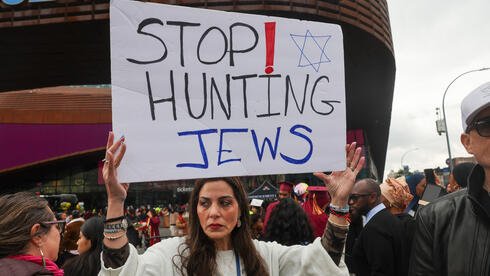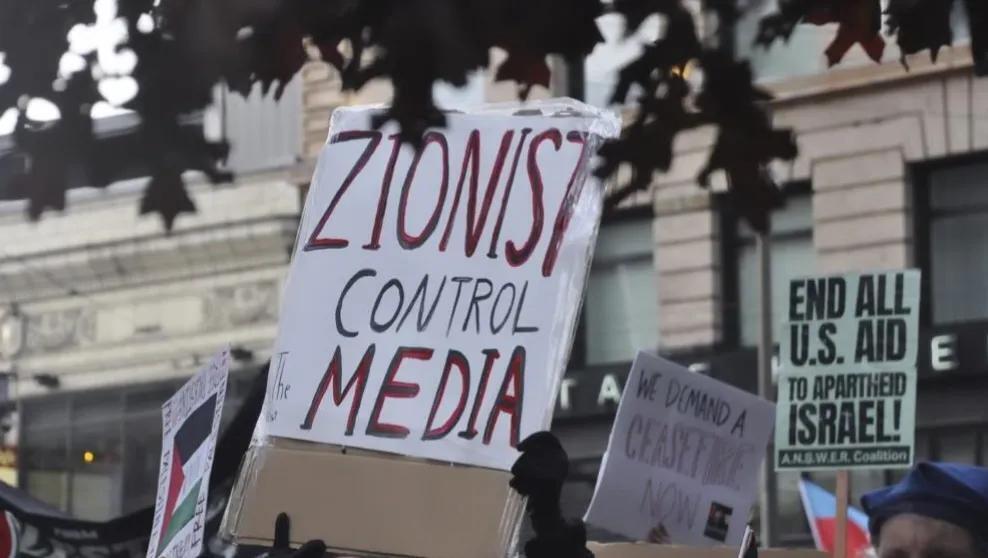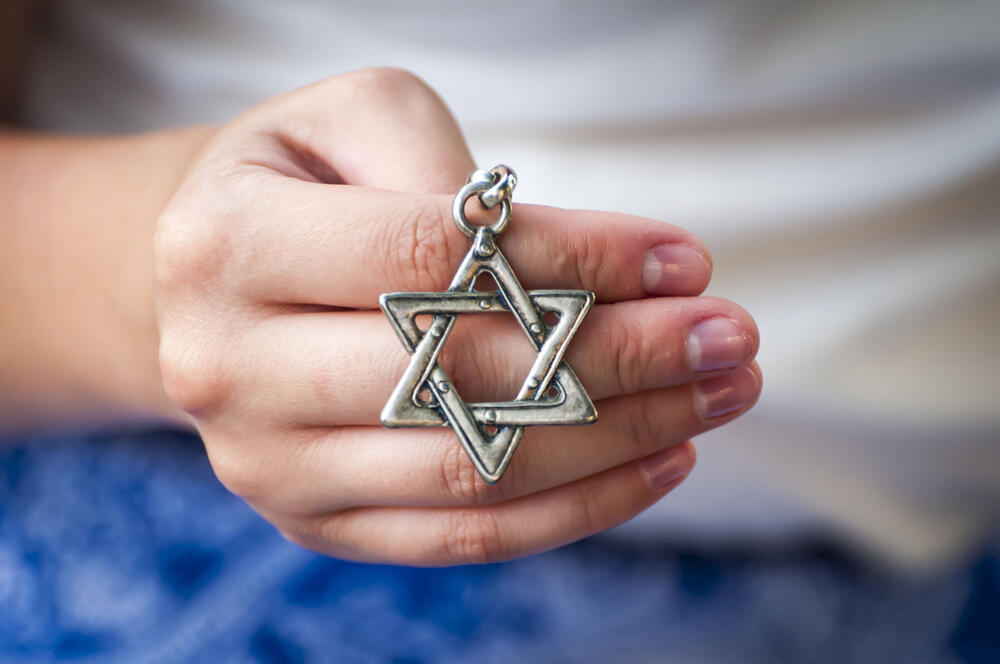5 View gallery
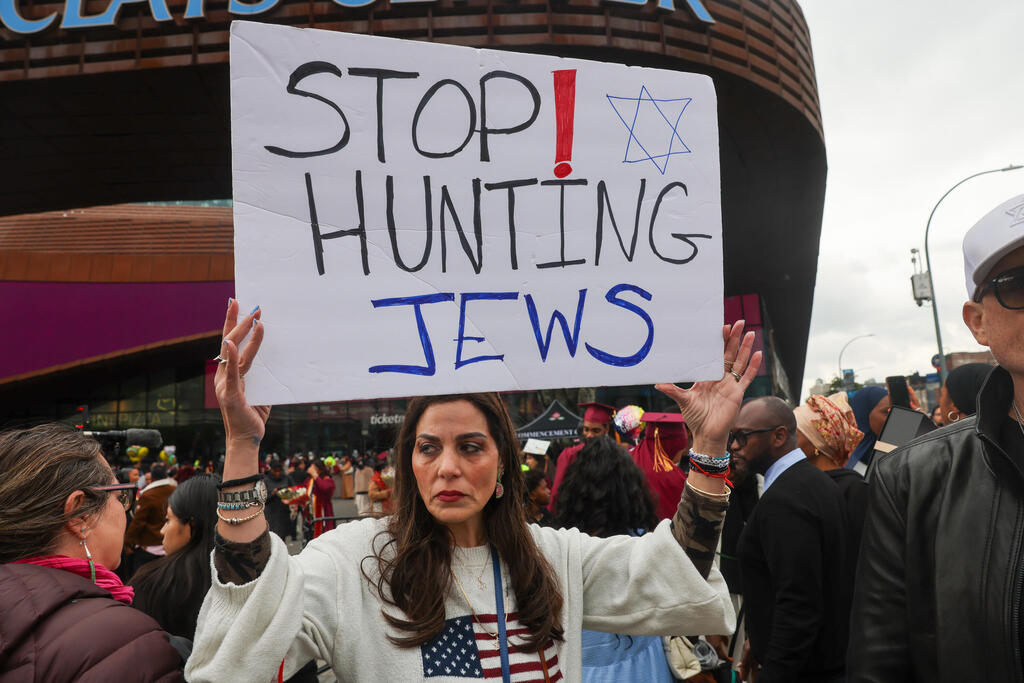

'Stop hunting Jews': Pro-Israel protester confronts pro-Palestinians outside CUNY graduation ceremony in Brooklyn
(Photo: Spencer Platt / Getty Images)
“We worked collectively as a Jewish community to release updated security guidance,” Masters said. “We are working to deal with hugely problematic Iran and its proxies. We are closely connected with law enforcement, intelligence and our security partners in case we see anything.”
In a statement, he added: “The situation in the Middle East potentially carries implications for the threat environment facing Jewish communities across North America. While there is no specific or credible threat at this time, we urge communities to remain vigilant, continue the strengthened security postures that institutions have implemented since October 7 and coordinate closely with law enforcement. This is a moment to demonstrate resilience, to stay alert, report suspicious activity and continue living proud, public Jewish lives.”
Masters said Iran remains the world’s leading state sponsor of terrorism. In recent years, SCN has tracked Iranian-linked actors involved in plots to carry out politically motivated violence, including assassination attempts against perceived regime adversaries, prominent Jews and Jewish communal institutions—globally and in North America.
He said that SCN analysts identified 500 threats to life in 2024. So far in 2025, that number has already risen to 700—a 40% increase with half the year still remaining. Following the May 21 shooting in Washington, DC, more than 6,000 violent threats were posted on social media in just one week.
5 View gallery
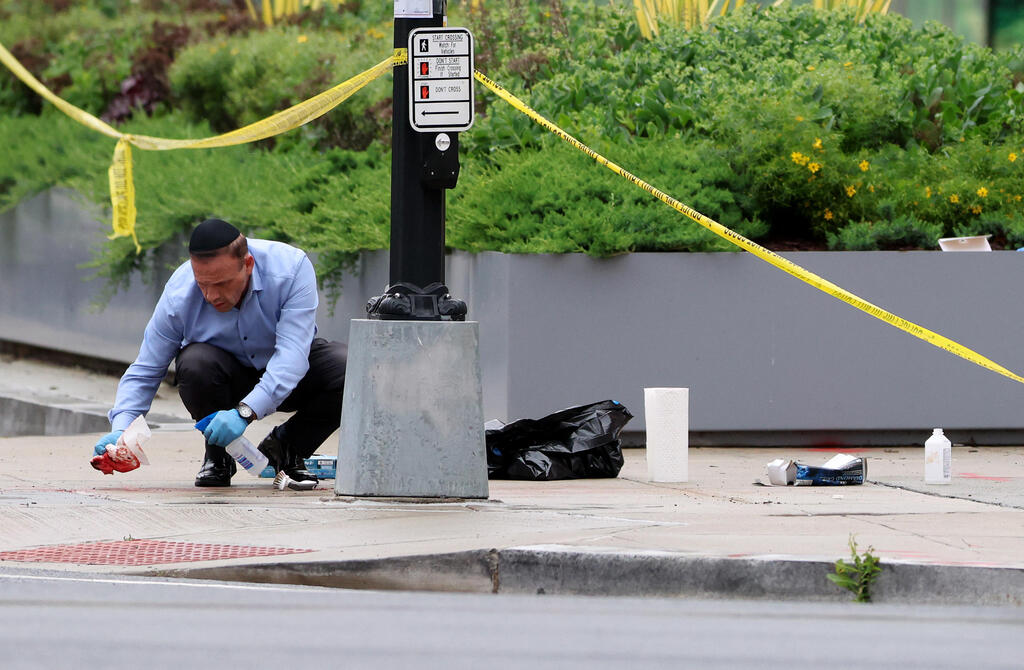

The scene of the fatal May 21 shooting in Washington, DC
(Photo: TASOS KATOPODIS / GETTY IMAGES NORTH AMERICA / AFP)
Iran has targeted Americans for decades. It bombed the U.S. Embassy in Beirut in 1983, killing 63 people. That same year, Iran killed 241 U.S. Marines at their Beirut barracks. It also plotted to assassinate U.S. President Donald Trump and other senior American officials in more recent years.
Immediately following the Israeli strikes and the first retaliation by Iran, the Jewish Federations of North America, the Anti-Defamation League, SCN and the Community Security Initiative of New York sent out recommendations to their Jewish communities, urging “the highest level of attention to the security protocols at every Jewish institution and gathering place.”
The memo said that “individuals and organizations should remain vigilant and ensure situational awareness, reporting all suspicious activity to appropriate security and law enforcement partners by maintaining a proactive posture versus reactive.”
SCN also called for increased awareness around regularly scheduled and special events. It encouraged Jewish groups to coordinate all gatherings with law enforcement. The organization further recommended using added layers of protections such as armed, on-duty or off-duty law enforcement, private security or trained volunteer teams.
“Reassess planned outdoor events that are often more difficult to secure and pose elevated safety concerns; consider moving them indoors or to a space that is more contained,” the announcement continued.
5 View gallery
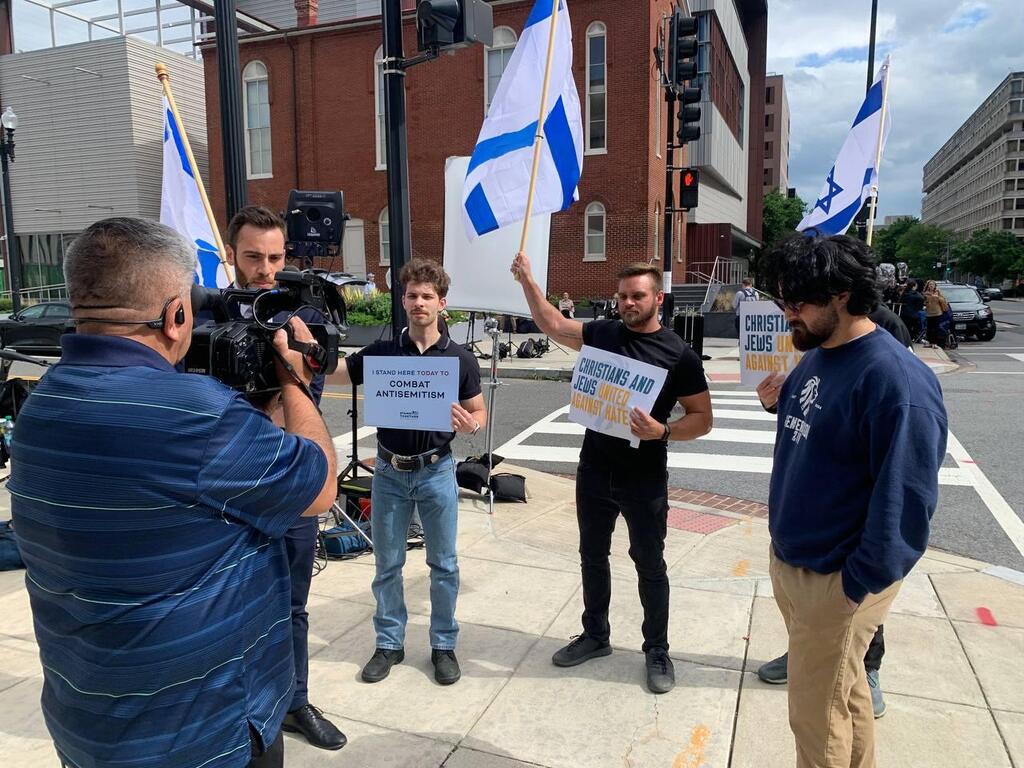

Scene of shooting attack in Washington, D.C.: Israelis and American Jews display Israeli flags in show of support; flowers laid in memory of victims Yaron Lischinsky and Sarah Milgrim
Masters said all events should be coordinated with security and that registration should be reviewed to prevent bad actors from attending.
A separate situation report issued by SCN to its staff and partners noted that, given the social unrest in the U.S. following the war in Gaza, tensions are likely to rise further as the conflict expands to include other Middle Eastern territories.
“The U.S. can expect to see larger, more violent public protests both supporting and opposing Israel’s action and any perceived U.S. involvement in another war,” the message stated. “Protests will strain law enforcement and provide additional opportunities for foreign actors to manipulate public opinion and encourage violent confrontation on U.S. soil.”
The same report warned that the Jewish community could be “unfairly blamed” for the actions of the Israeli military in Iran. That blame could take the form of vandalism, physical assaults and antisemitic rhetoric in both physical and digital spaces.
“The broader conflict is likely to inspire additional lone-actor threats,” SCN wrote. “Individuals such as Elias Rodriguez, the DC shooter, and Mohamed Soliman, the Boulder, Colorado attacker, may serve as a precedent for further ideologically motivated violence targeting Jewish individuals, events and institutions.”
In response, individual Jewish federations and organizations sent messages to their communities to offer reassurance and guidance.
Jay Lewis, the president and CEO of the Jewish Federation in Kansas City, emailed members, acknowledging that the strikes “make this a time where some may feel anxiety and/or other emotions related to Jewish events, programs, places or spaces (physical and digital).” He stated that the local federation is in contact with Jewish security networks, as well as federal, state, and local law enforcement and intelligence sources.
“We believe that at this moment, we can and should continue living our proud Jewish lives while simultaneously staying alert and reporting any/all things out of the ordinary or that could be suspicious activity,” Lewis wrote. “As always, ‘if you see something, say something.’“
Masters emphasized that Jewish life must go on. “This is most critical,” he said. “We know that one of the primary goals is to clamp down on Jewish identity and life. We are not going to stop Jewish life. We are not shutting down Jewish life. We are strong, proud, and we stand as a united people.”
Meanwhile, around 95 Jews from across North America were in Israel for the now-cancelled gay pride parade through a mission organized by JFNA.
Nate Looney, the Jewish Federations of North America’s director of community safety, was among them and was in the country when Iran launched its strike. He said the group is now staying together at a hotel in Tel Aviv, trying to remain safe amid the ongoing conflict.
“Like everyone, we’re trying to figure out how to get back home,” Looney said.
He also reiterated Masters’ message for the community abroad: “Our security systems and our organizations are doing everything that they can to monitor situations across the country.”

